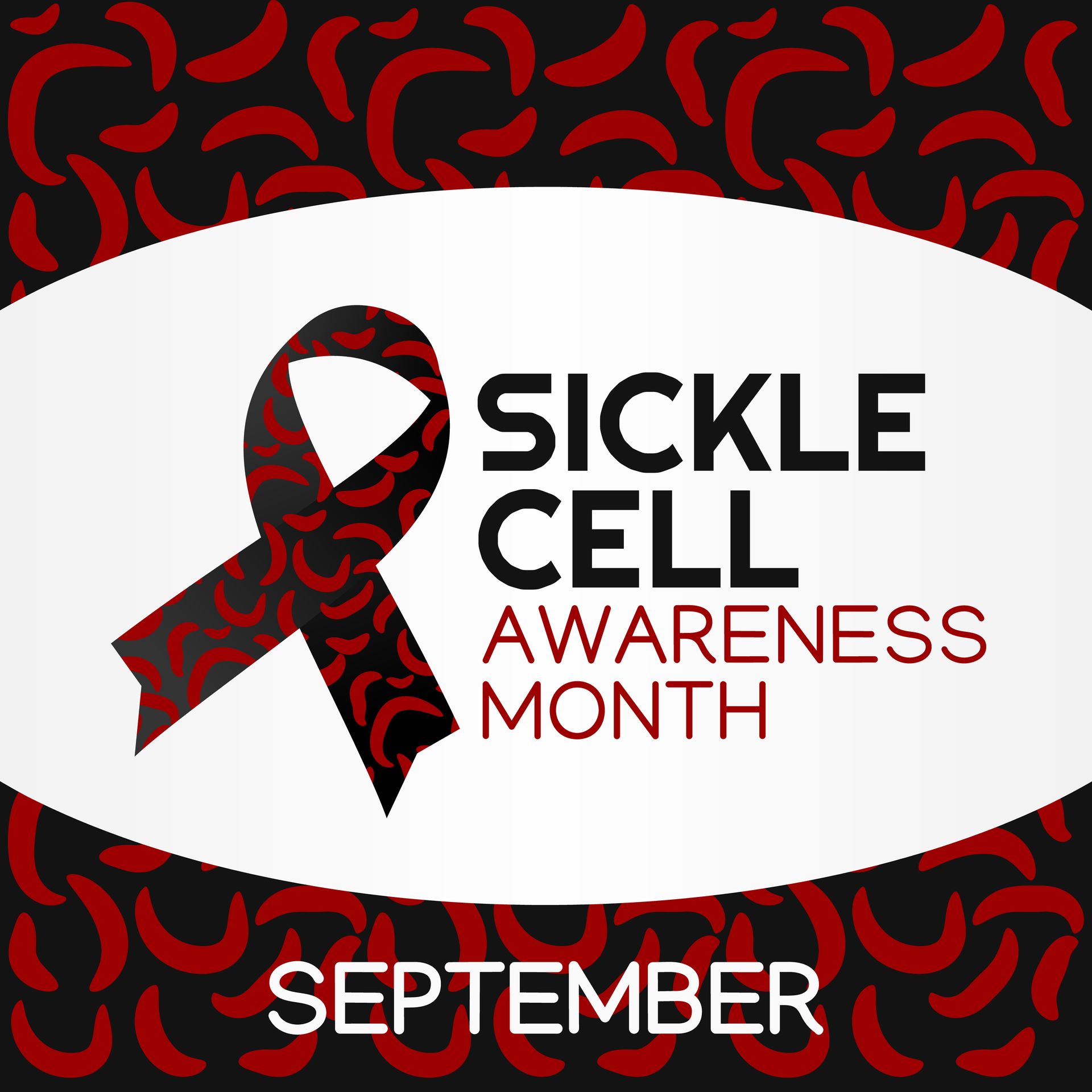September is National Sickle Cell Awareness Month, designated by Congress to help focus attention on the need for research and treatment of sickle cell disease. Here’s information you should know; plus upcoming events to support sickle cell awareness.
The Sickle Cell Disease Association of America’s (SCDAA) theme for this year’s awareness month is Sickle Cell Matters 2023.
What is Sickle Cell Disease?
Sickle cell disease (SCD) is an inherited blood disorder in which red blood cells may become sickle-shaped and harden. For a baby to be born with sickle cell disease, both parents must carry a sickle cell trait. Sickle cell disease is not contagious, and there is no universal cure.

SCD Facts
- About 1-in-13 African Americans carry the sickle cell trait and many do not know they have it.
- An estimated 100,000 people in the U.S. have SCD.
- Approximately 2,000 babies are born with SCD annually in the U.S.
- On average, a diagnosis is made at birth.
- 8% of African Americans are carriers of SCD.
- People of many ethnic backgrounds can have SCD.
- Latinos have the second most common incidence of SCD in the U.S.
The blockage of blood flow caused by sickled cells leads to complications including:
- Chronic severe and unpredictable pain
- Anemia
- Approximately 2,000 babies are born with SCD annually in the U.S.
- Frequent infections
- Swelling in extremities
- Fatigue
- Delayed growth
- Vision problems/blindness.
- Lung tissue damage
- Kidney disease
- Stroke
- Shortened life expectancy

Where is SCD prevalent?
- Sickle cell disease is a global health problem.
Staying healthy with sickle cell disease involves:
- Pain management
- Self-care — including eating well, exercising and drinking water.
- Preventing infections from common illnesses such as the flu
- Medications to reduce the severity of sickle cell disease
- Regular preventive care including vaccinations and health and dental checkups
- Quality medical care from doctors and nurses who are educated about SCD
- Building a support system of friends and family
- Connecting with a patient support group or a community-based SCD organization
for information and assistance
The search for a cure…
Bone marrow (stem cell) transplants can, in some cases, cure sickle cell disease, but not all individuals are eligible for this procedure and there are associated risks. Read more about this NIH initiative: www.curesickle.org.
How Can You Support Sickle Cell Matters?
You can share this article to help generate awareness! And use hashtags on social media: #SickleCellMatters2023, #SickleCellAwarenessMonth, #SCDAA2023AwarenessMonth and #SCDSCTmatters.
SCDAA encourages everyone to be a part of this national effort to increase awareness about sickle cell disease and sickle cell traits during the month of September. Individuals and organizations can join their efforts to bring attention to sickle cell disease by engaging elected officials for proclamations, hosting awareness events, distributing educational information to dispel the myths about sickle cell disease, and lighting public spaces, buildings and landmarks with the color red.

Here are more ways to help:
• Donate blood to support transfusions. Click here to register for the virtual blood drive!
• Advocate for better treatment, education and research.
• Educate others about sickle cell disease and sickle cell trait.
• Get tested for sickle cell trait if you are of African descent and do not know your status.
• Support SCDAA as we search for a universal cure.
SCD Treatment Options:
• Over-the-counter pain relievers are commonly used to treat chronic pain.
• Hydroxyurea (Siklos, Droxia) and Oxbryta (Voxelotor) are prescribed medications that can decrease some complications of SCD.
• Endari (Glutamine) and Adakveo (Crizanlizumab) are prescribed medications that can reduce the number of sickle cell pain crises.
• Blood transfusions can help relieve symptoms of SCD and potentially prevent complications.
SCD Screening Test:
• Newborn screening can help identify SCD and expedite early management and treatment.
• Adult screening can help identify if someone has SCD or is a carrier of the SCD trait.
• Sickle stroke screening, also known as Transcranial Doppler (TCD) screening, can help identify people with brain abnormalities as a result of SCD who are at high risk for ischemic stroke and brain injury.
• Organ screening can help identify damage to organs such as the kidney, eye and heart.

Attend an Event
SCDAA member organizations across the country are hosting events to bring our community together. Click here for a full list of events and find one near you!
Learn more: sicklecelldisease.org | Courtesy of Sickle Cell Disease Association of America.






